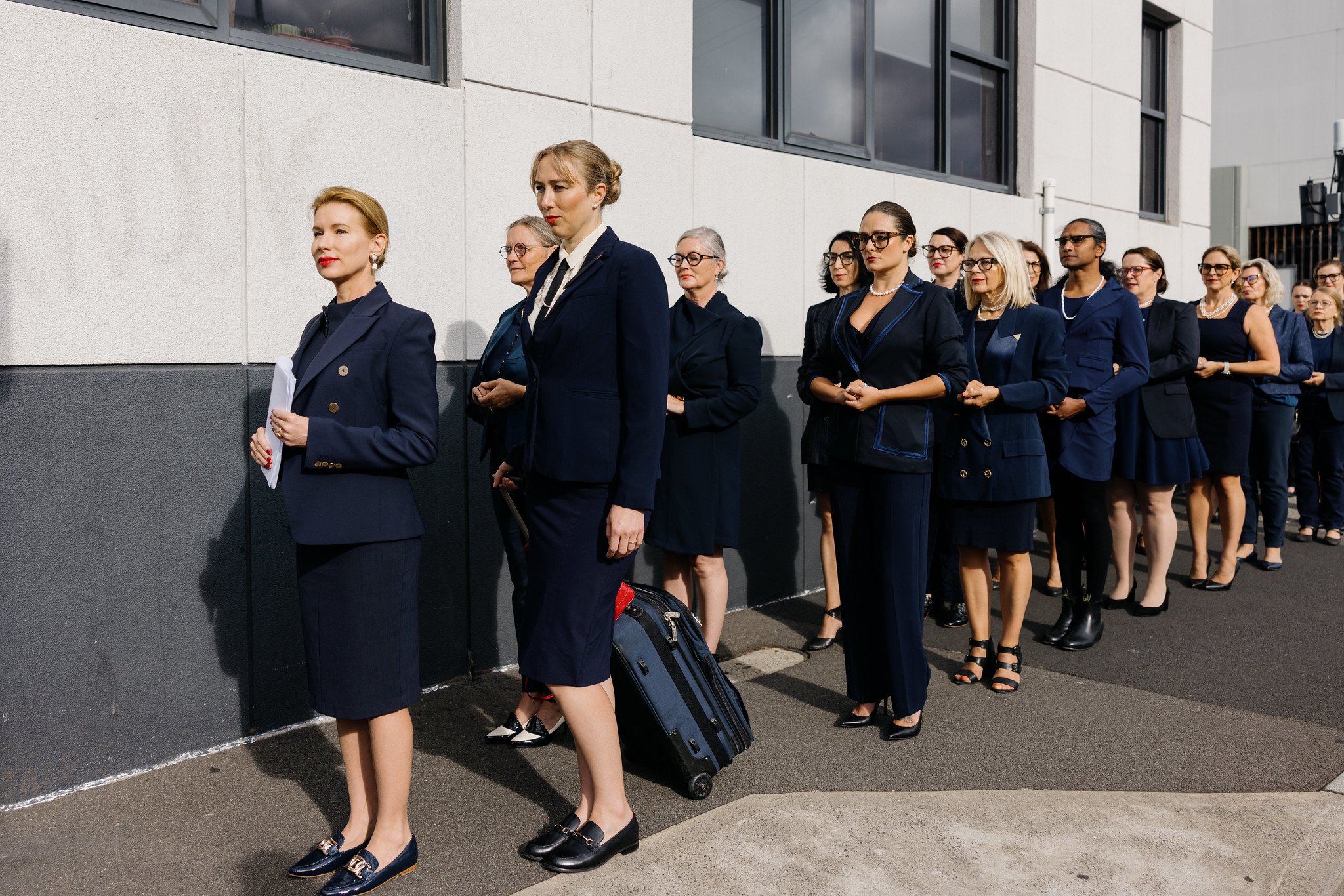
A luxurious spot for dining and art created by artist Kirsha Kaechele at Tasmania’s Museum of Old and New Art (MONA) has landed the museum and the artist in court. Visiting the Ladies Lounge for high tea involves being waited on by a butler, peering at priceless art, sipping 400-year-old wines, and savoring “preposterous morsels” prepared by the museum’s executive chef, Vince Trim.
Just don’t plan to visit if you’re a man, because, in keeping with the piece’s title, only women are allowed.
The installation appears on the museum’s website under the heading of “Really fancy stuff to do at MONA,” and that’s no joke, because tickets are $500 a pair. The piece was inspired by Kaechele’s great-grandmother, whom she describes as a “scandalous socialite” who threw lavish ladies-only parties at her estates in Basel and in Beverly Hills and, when she was admitting men, hosted Pablo Picasso. (Some of the paintings on view are purportedly Picassos from her holdings.) Some important works from the museum are on view behind the velvet rope that keeps men out.
Perhaps predictably, Jason Lau, a visitor from New South Wales, was put off when he could not visit Kaechele’s installation, despite having paid for a museum ticket. Lau filed a complaint with the local Anti-Discrimination Commissioner, which ultimately led to a hearing Tuesday before Richard Grueber, division head and deputy president at the Tasmanian Civil and Administrative Tribunal.
High Tea for Two, Ladies Lounge at Mona, curated by Kirsha Kaechele. Photo: Mona/Jesse Hunniford. Courtesy MONA Museum of Old and New Art, Hobart, Tasmania, Australia.
Kaechele (who happens to be married to the museum’s owner, collector and gambling millionaire David Walsh) arrived to the hearing in a blue business suit, backed by about two dozen similarly clad supporters, all sporting matching red lipstick, according to the Mercury newspaper.
They put on something of a performance during the hearing, according to the BBC, which reported: “They had periods of complete stillness and silence, before moving in some kind of subtle, synchronized dance—crossing their legs and resting their heads on their fists, clutching their hearts, or peering down their spectacles.”
Kaechele and the museum’s lawyer, Catherine Scott, argue that they are on the right side of the law because Tasmania’s Anti-Discrimination Act has a provision that allows programs that promote equal opportunity for disadvantaged groups. During her testimony, she described the many ways women have been historically discriminated against, including being excluded from the workforce after getting married and being paid less than men for the same work.
“The ladies’ lounge serves as a sanctuary for women, addressing the historical exclusion and imbalance in artistic representation,” Kaechele testified, according to the Mercury.
According to the paper, Lau argued: “Any lay person would expect that if you buy a ticket, you would expect the provision of goods and services in line with the law.”
Scott even argued that in contrast to Lau’s claim of being deprived, he experienced the piece exactly as intended. “Part of the experience,” she said, “is being denied something that is desired.”
“Their experience of rejection is the artwork,” the artist said.
Kirsha Kaechele, Ladies Lounge. Photo: Mona/Jesse Hunniford Image. Courtesy MONA Museum of Old and New Art, Hobart, Tasmania, Australia.
“We are so deeply embedded in the dominion of man that we do not even see the myriad ways in which we adhere to and multiply his reign,” said Kaechele in an email. “And for this reason, we need the Ladies Lounge: a peaceful space women can retreat to; a haven in which to think clearly, and relish the pure company of women—to escape the invisible story woven through history.
“The Ladies Lounge is a space exclusively for women, excepted only by a retinue of male butlers who live to serve women, attending to their every wish and showering them with praise and affection (in chivalry—the unequal rights component of any good reparations deal). The Ladies Lounge is an essential space for perspective and reset from this strange and disjointed world of male domination. There should be more of them.”
Kirsha Kaechele Ladies Lounge hearing. Photo: Mona/Charlotte Vignau. Courtesy Museum of Old and New Art, Hobart, Tasmania, Australia.
Lau is arguing that the display should be shut down, or should be forced to admit men, or that the museum should charge men less for tickets, which the museum has rejected as a solution.
Kaechele, speaking to the BBC, counseled her supporters not to be too mad at Lau: “I think people might want to villainize him,” she said, “but he’s actually really lovely.”
The artist and her supporters exited the court at the end of the hearing in a synchronized dance to Robert Palmer’s song “Simply Irresistible.”
Grueber is expected to issue a decision in the coming days, according to the Mercury.